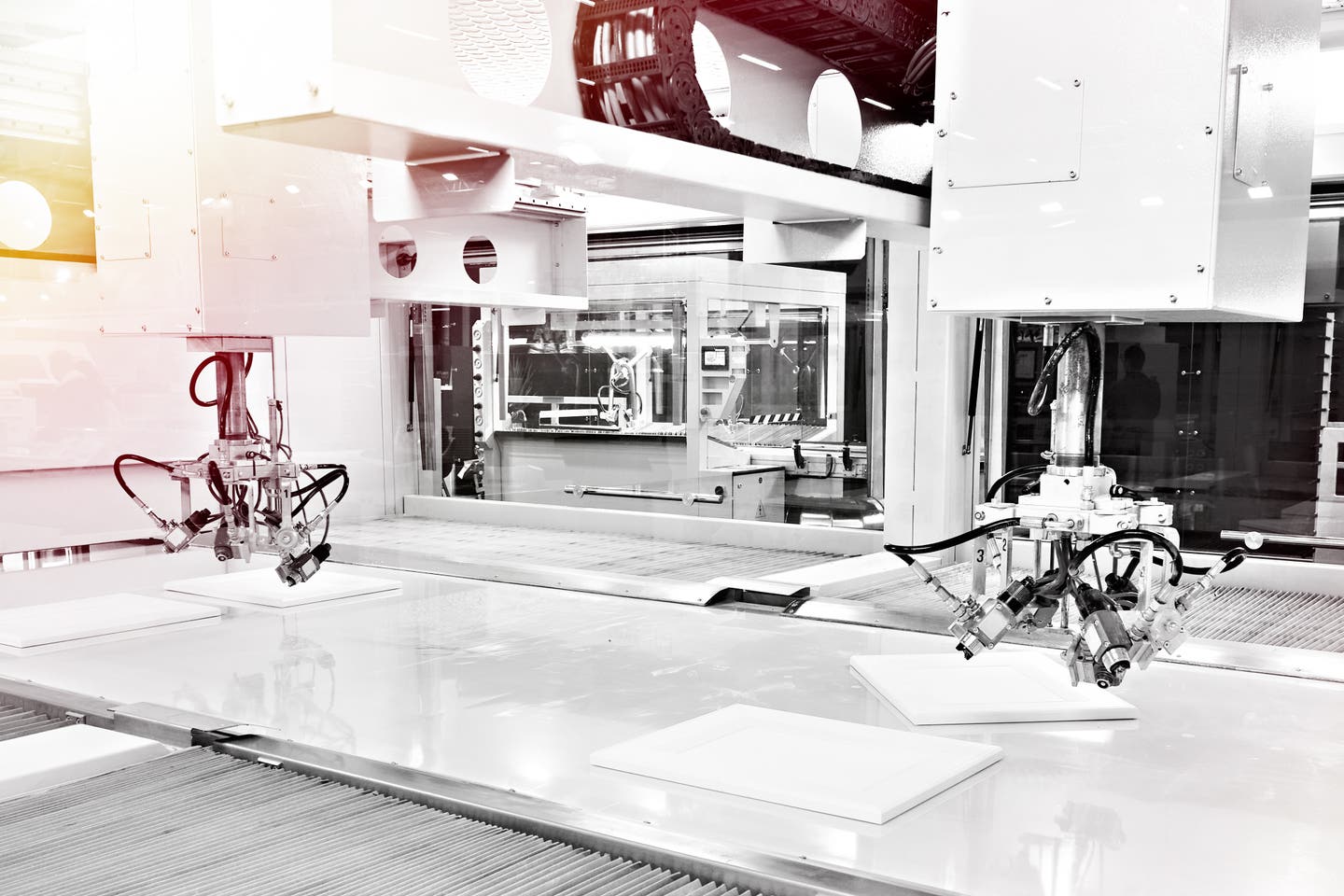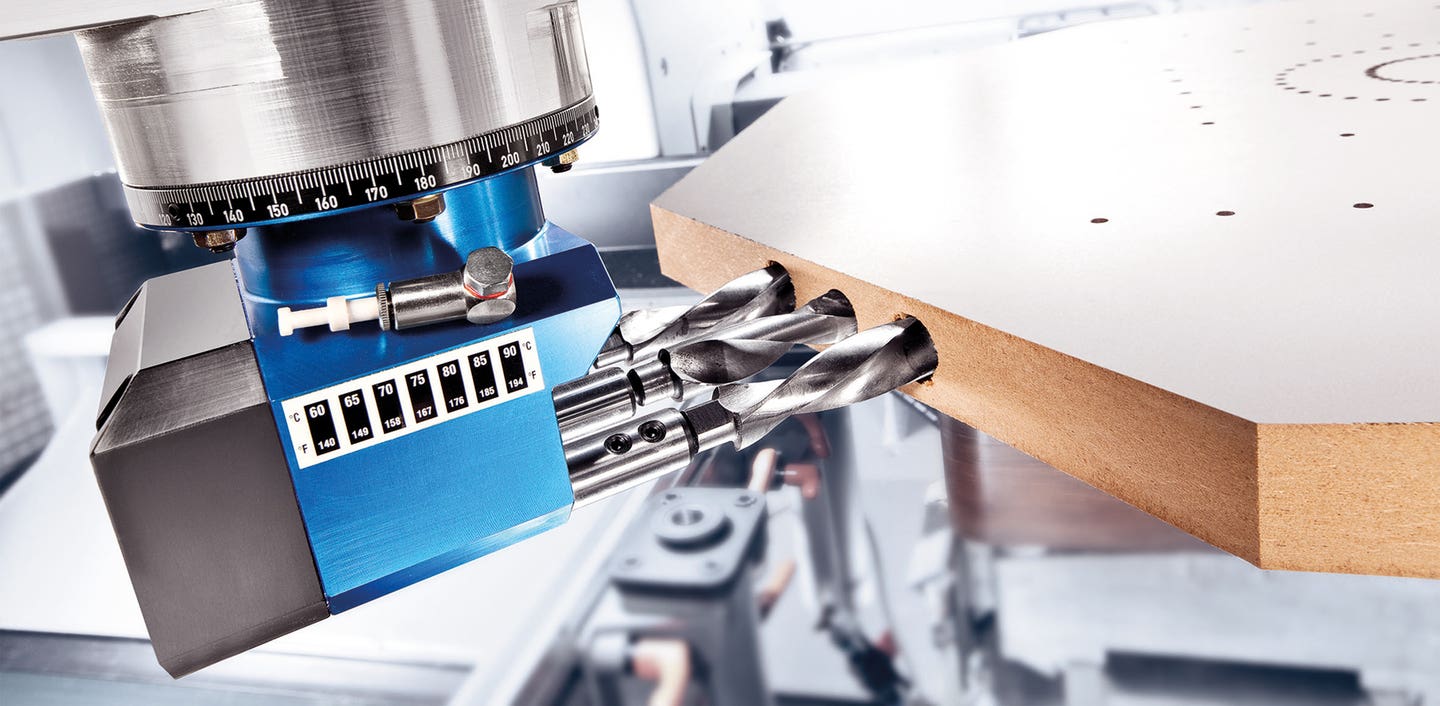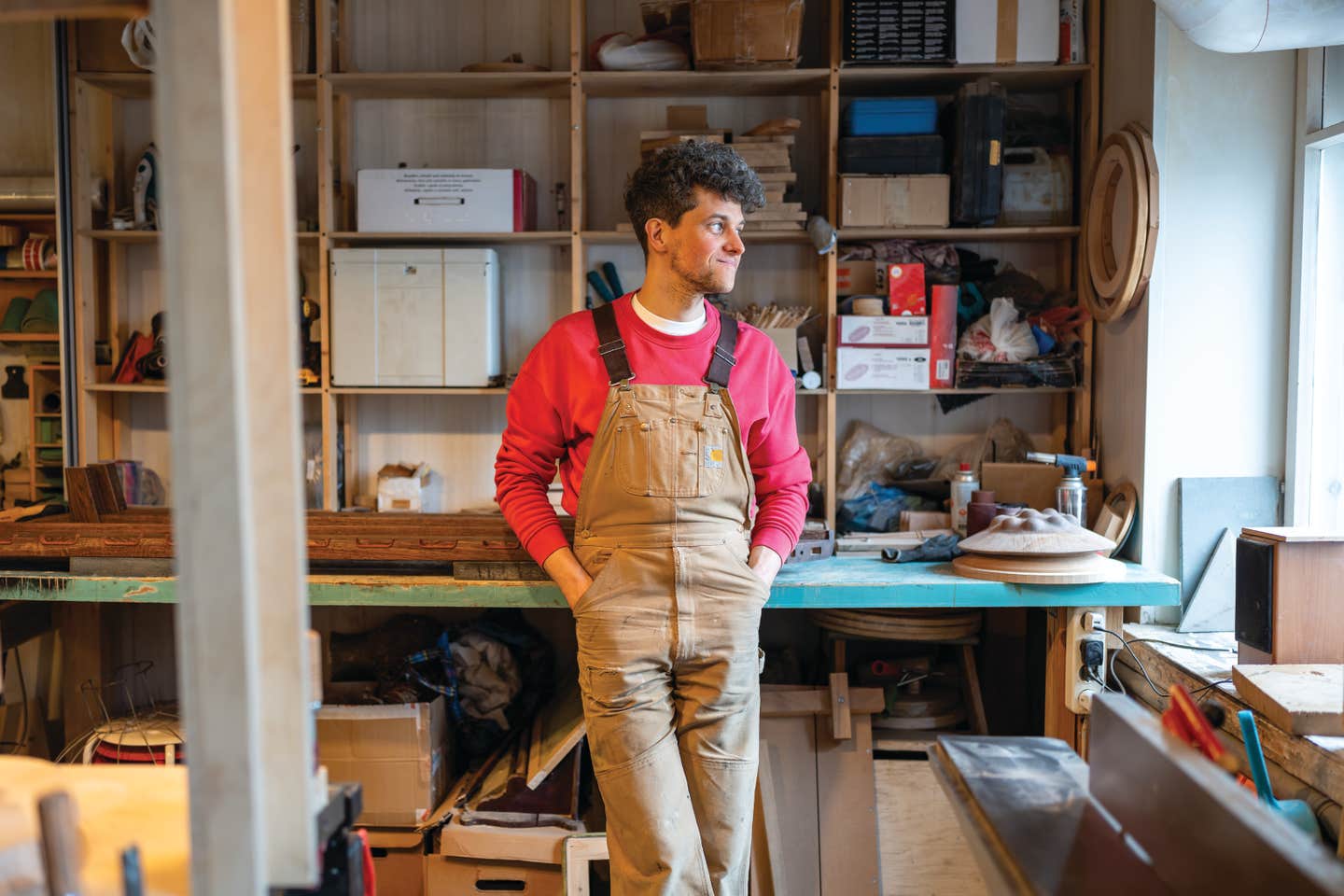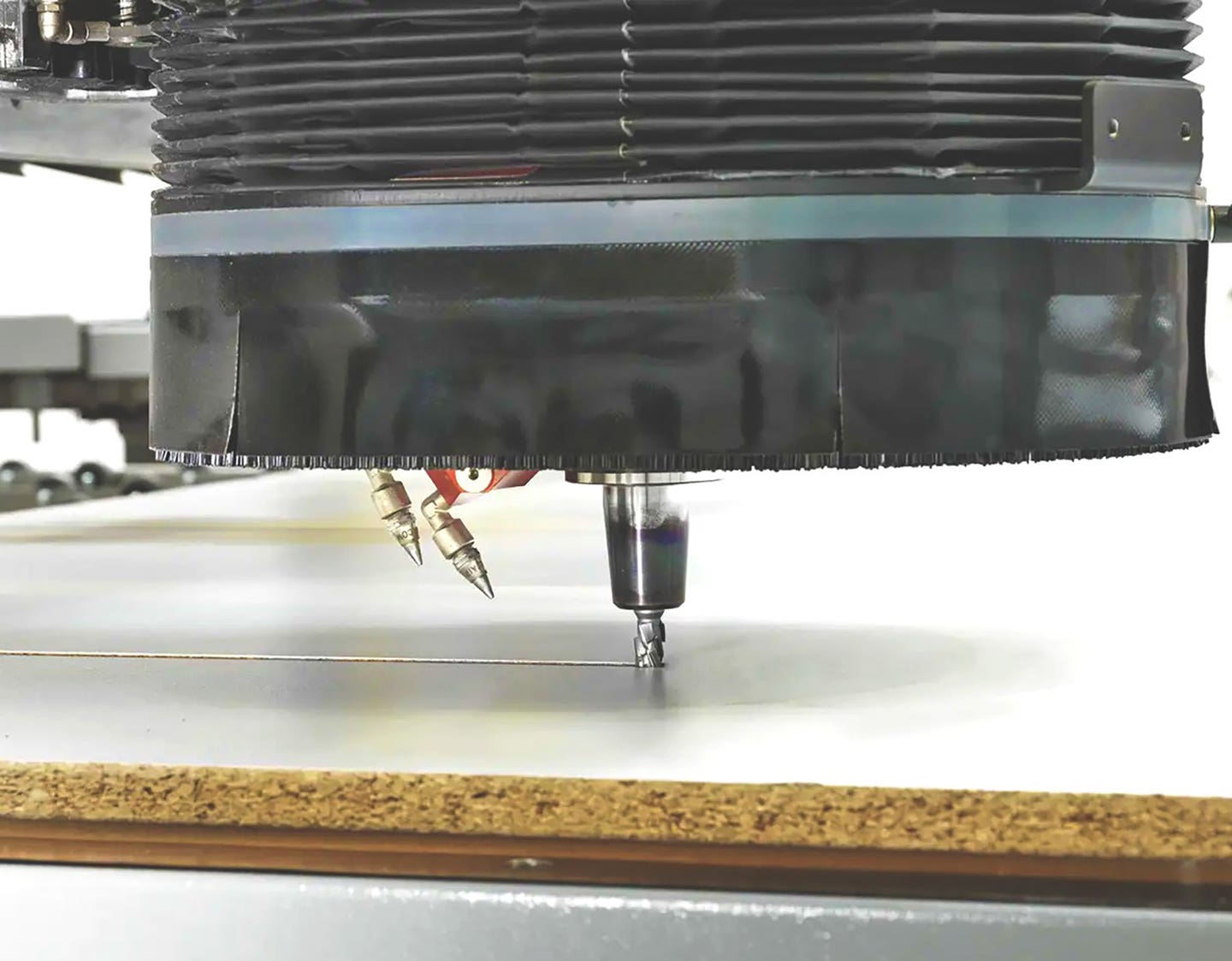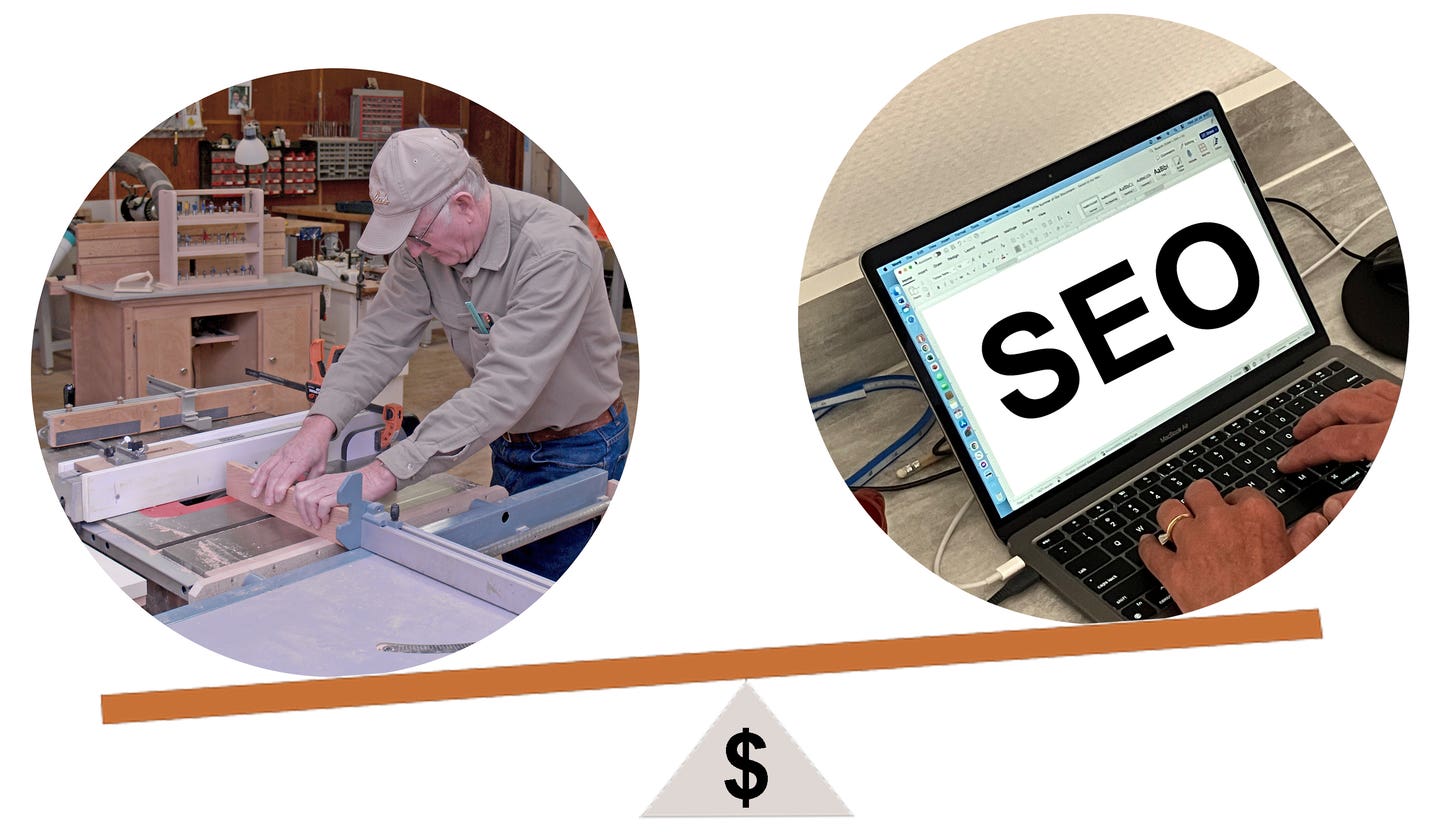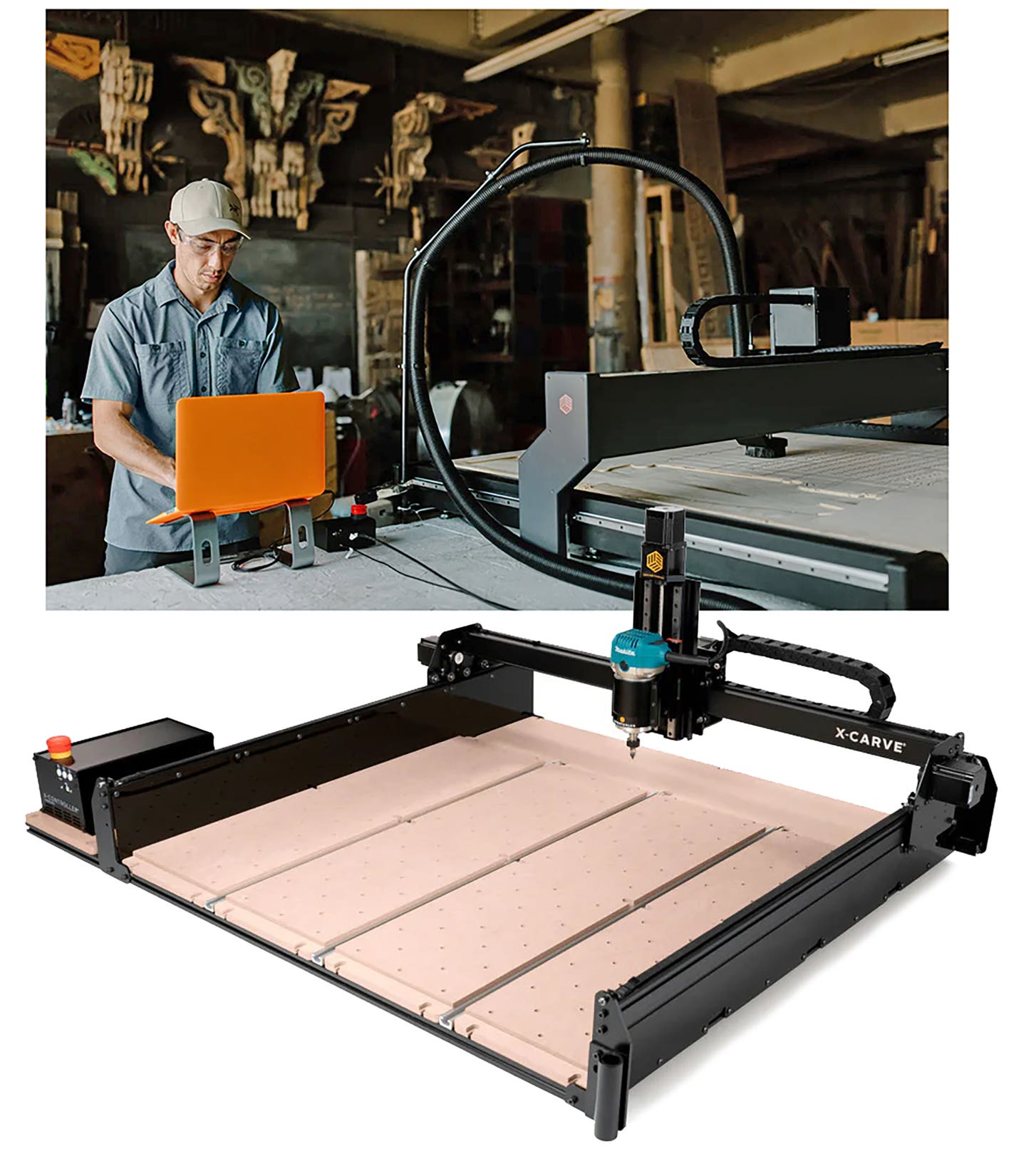Onward and upward
North Atlantic Corp., based in Somerset, Mass., is one of the largest millwork suppliers in New England. The family-run company has more than 350 employees within its several building divisions…
North Atlantic Corp., based in Somerset, Mass., is one of the largest millwork suppliers in New England. The family-run company has more than 350 employees within its several building divisions added through acquisitions and expansions through the years.
The other companies under the North Atlantic Corp. umbrella include Horner Millwork, Cleary Millwork, HomeSouth Architectural and the Remodeler’s Outlet. Its custom manufacturing sector, the Architectural Products Division, became part of the company in 1991 under the Horner Millwork subsidiary, as explained by the division’s vice president Dave Silvia.
The division represents about 18 percent of North Atlantic Corp.’s total sales and has 68 employees, including more than 50 on the shop floor producing staircases, doors, windows and interior millwork.
Nestled in the basement of a 214,000-sq.-ft. complex, the Architectural Products Division’s 55,000-sq.-ft. shop features several million dollars of machinery and equipment investments. For any woodworking enthusiast, Silvia calls the Architectural Products Division the “hidden jewel” of North Atlantic Corp. But the real meat and bones of the operation are its employees, he says.
“You can have all of the machines you want, but if you do not have good, dedicated employees that you invest in, it means nothing,” Silvia says.
He believes that the company’s success comes from its support of formal employee training within and outside of the company.
“We always invest in specialized training, whether it be for molding or CNC equipment, for example, to the right candidate. We also want everyone cross-trained on the shop floor. Part of being lean is sharing so no one feels like they’re being threatened and cross-training takes the fear out of the equation. It took years to employ this practice, but it works well because our employee retention is very high.”
The ‘experts’
In addition to its main headquarters, the company has three sales offices in Woburn, Pembroke and Southborough, Mass., serving a national clientele of architects, contractors and homeowners.
“[Architectural Products Division] has two unique brands, proprietary products we manufacture here in Somerset. One is Cooper Stairworks, which manufactures custom staircases. This can include everything from a $300 box stairway to a $300,000 custom curved staircase with glass and iron balusters. The other line is our Captiva Wood Doors brand that we started ourselves which offers all types of custom doorways,” Silvia says.
The company has a good rapport with a variety of building contractors going back more than 30 years. The administration takes part in architectural shows and demos and other promotional events to announce its products to the public.
“Out in the industry we’re perceived as the experts,” Silvia says. “We do so many stairs we’re fortunate enough to have the owner invest in proprietary products like our Captiva doors and Cooper stairs. We’ve evolved so much over the years that people come to us with expert advice so we capitalize on that.”
Lean and green
The company offers 16 wood species, including recycled variations of chestnut and pine. An uneducated guest wouldn’t know from the rows of stacked lumber, but inventory is kept at an as-needed level to follow lean manufacturing principles. New lumber is delivered daily as the shop churns through about $2 million worth a year.
Silvia is most proud of the company’s custom staircases as they are always a great focal point in a home. He believes that seeing any finished product is what really keeps employee retention strong.
“It’s very rewarding work. When you turn around at the end of the day and see a custom door, stairway or molding, you feel good about it. You feel like you’ve created something, even if it’s only one part of it. I was an installer years ago and that was one of the things that attracted me to stay in this business because it was always so rewarding to see what I accomplished.”
Silvia has seen style preferences change and come back through the years.
“I used to get paid very well to take out metal rails and balusters and put wood components in. I’ve been around long enough to see those being taken out again and for the customers to have their balusters in a combination of wood and metal. It’s been a 15-year trend now, the more creative combination with wood and iron combinations and textures. Now people want to incorporate cable wire, glass and stainless materials in them.
“This phase is showing a demand for a more contemporary look with our stairs and custom doors. But it does not totally represent the region. New England will always be traditional, but there is a growing segment, a growing generation of people that want something unique.”
Surviving the recession
The company’s best revenue years were 2007 and 2008. However, the recent recession was a difficult five-year period. The company had to lay off about 25 percent of its workforce.
“This is a family-run business managed by the owner and his two sons. They have been in business their entire life. When we had the layoffs they were done with great reluctance; it was just survival,” Silvia says.
Silvia says the company’s lean manufacturing procedures, put in place 14 years ago, were what kept business alive during the recession.
“I firmly believe with all my heart that had we not started that journey into lean when we did, this company would not be here after the recent recession. So it made us more competitive when we had to be and kicked in at the time we really needed it.
“Other than laying off employees, we didn’t have to drop our prices a whole lot. We just focused on being competitive in any geographical market we were in because we do manufacture here and can control some of our costs, so that’s our advantage here.”
Equally, if not more important, has been great attention to customer service.
“I think we’ve always been fair with our customers. Even during the booming years we did not take advantage on price and during the recession we kept the same philosophy. We’ve always tried to keep the prices competitive. I think that helped us overall when things got slow. We were known as a fair company,” Silvia says.
The next step
The shop features two CNC machines and a work cell arrangement. Each cell is like is like its own little shop, stocked with whatever tool or machine that’s necessary to build a staircase, door or hand rail, for example. Hardware bins and lumber racks are nearby and labeled clearly. There’s a place for everything and everything is in its place, except for the new 6-axis CNC purchased at IWF 2014. The shop has 10’ ceilings, too low for the new machine, so a hole will have to be cut. That’s kind of a big deal, but Silvia will make it happen.
“I still do estimating, but customer and employee contacts are very important to me,” says Silvia. “I’m really lucky to have good supervisors that have been with me for years and the shop supervisor overseeing the operations. There’s one main supervisor for Architectural Products Division, Jim Frenette, and four others for each department.
“I also have great employees. I encourage them to do their own job like the owners did to me. It empowers them and encourages them to grow and be creative. They make mistakes, absolutely, but that’s part of the process. The company does give you a lot of freedom to express yourself.”
And the big company figures to get even bigger.
“There’s been talk of more expansion since the recession such as adding onto the building here. Now sales have picked up and we’ve introduced new products so it wouldn’t surprise me at all,” Silvia says.
Contact: North Atlantic Corp. Tel: 508-679-6479. www.northatlanticcorp.com
This article originally appeared in the November 2014 issue.


